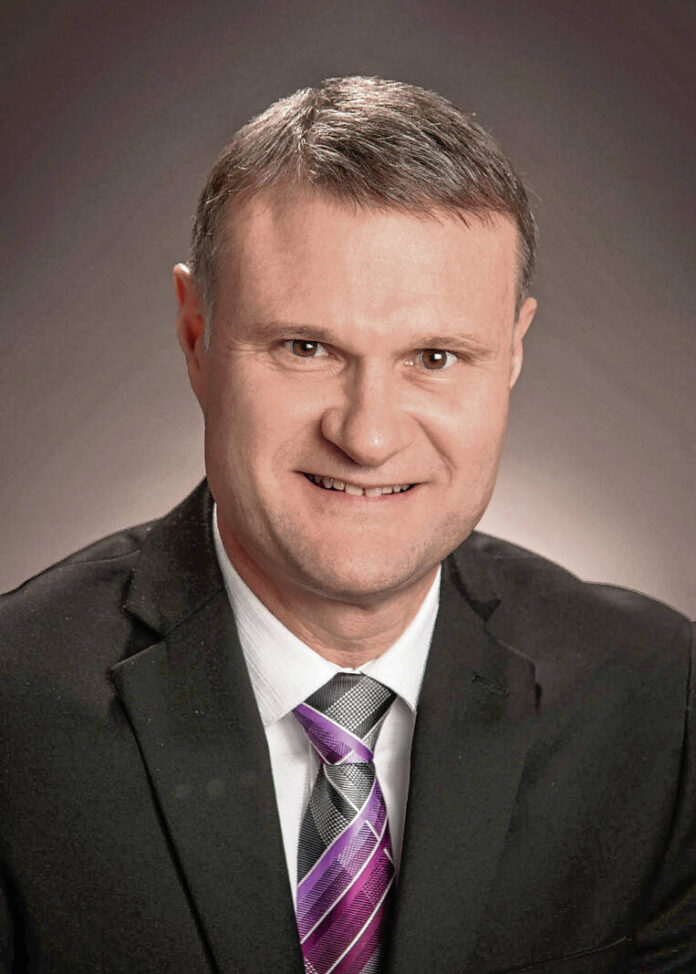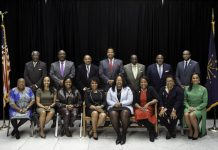Bartholomew Consolidated School Corp. is considering a number of policy updates, including some that concern student-staff relations, banning sex offenders from school grounds and student and staff dress codes.
The potential updates were discussed at Monday’s school board meeting but will not be voted on until February or March, Superintendent Jim Roberts said.
The school corporation has a contract with the education consulting firm Neola that helps them update policies based on changes in state and federal legislation, as well as changes in case law.
The current set of recommended policy revisions includes new policies on Staff-Student Relations.
“Because of some case law situations, it was suggested that there are a few other things that we might wish to add that would lead to discipline of a staff member beyond just criminal conduct,” said Roberts.
The policies are intended to “specifically address staff-student relations that may constitute criminal conduct, child abuse or neglect, inappropriate boundary invasions (optional) or other conduct unbecoming a professional staff member.”
In discussing the policy, board member and former BCSC teacher Dale Nowlin expressed some concern about where the line is drawn, as an act such as hugging a student could be either appropriate or inappropriate depending on the context.
Roberts agreed that it’s a complex subject and said that BCSC has a variety of options to choose from in regards to this policy, such as one section about whether or not a teacher should be providing the same level of guidance as a counselor.
“That’s kind of walking a fine line,” he said. “We certainly want that student relationship with teachers, we want that trusted adult, so how do we word that appropriately to maintain proper boundaries but also have that trust and respect between staff and students that we’re asking for?”
Nowlin added that there are also unique situations, for instance, during his time as a teacher, he once had a student living with his family for the last six months of his high school career.
Roberts also presented a revision to the policy on school visitors, which would prohibit persons included in the State Sex and Violent Offender Registry, those entered in the equivalent federal registry, or who otherwise meet the definition of “Serious Sex Offender” from accessing school grounds. The updated policy also provides “an option for the board to select regarding whether to permit visitors other than parents on school grounds.”
Another suggested revision pertains to a policy on dress and grooming for students. Roberts said the changes are to ensure that language is stated in a nondiscriminatory and uniform manner that complies with Title IX.
In a version of the policy presentation that was given to The Republic ahead of Monday’s meeting, the slide on this policy stated: “Optional language has been added to state what is legally required with regard to enforcing the dress code in a nondiscriminatory/uniform manner and affirming a student’s right to dress in accordance with their gender identity (within the constraints of the adopted dress code) versus their birth gender.”
However, the statement about gender identity was not included in Roberts’ presentation during the board meeting.
In addition to the student policy, there is also an update regarding staff dress and grooming, which would state that BCSC administrators should be held to the same standards as staff. It also states that the school board will enforce the staff dress code in a “nondiscriminatory/uniform manner” in accordance with the principles of Title VII and Title IX.
The potential policy revisions also include an update for the policy on filling board vacancies, some minor revisions regarding terminology in certain policies, changes regarding federal grant reporting and requirements, adding in the Graduation Pathways requirement for graduating classes starting in 2023 based on Indiana law, and prohibiting discrimination in the food service program.
In discussing the proposed changes, board member Jason Major suggested that it might be good to form a policy review committee for more in-depth review and conversations.
“Something where it encourages additional conversation is probably going to have to be necessary,” Roberts said.
However, he added that if too many board members meet or communicate outside of an official board meeting, it can violate public access laws. He suggested it might be possible to create a subcommittee or hold separate public meetings just to discuss policies.





